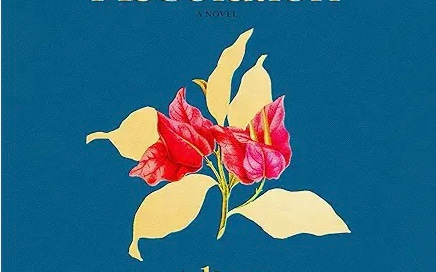BookLife Review by Carol O'Day: Absolution (Alice McDermott, author)
historical fiction, Saigon (Ho Chi Minh City), 1960s, Vietnam Conflict, military wives, charitable works, white savior syndrome, cultural appropriation, leprosy, Barbie dolls, miscarriages
National Book Award-winner (Charming Billy, 1998), Alice McDermott, delivers a thoughtful and provocative new book, Absolution, set in Saigon (now Ho Chi Minh City) in the early 1960s, during the Vietnam “conflict”. McDermott’s novel, however, is not about the war or even about the people who fought or served in the military in that conflict, not directly. It is a story of the spouses, more accurately for that period, the wives of the military men and contractors who were stationed in Saigon then. It was the era of Jackie Kennedy sheaths and bouffants, of garters and girdles, of ladies who lunch (have they stopped?), of women who devoted themselves as “helpmeets” to their husbands and their husbands’ careers, who shopped daily, napped in the afternoon heat and dressed for dinner. Yes, a bygone era, and yet, one with themes and experiences that skip lightly over intervening decades in a recurring dance of noblesse oblige. McDermott tells the story from the point of view of Patricia Kelly, a twenty-three year-old newlywed, who arrives in Vietnam with her husband Peter, an engineer eight years her senior. Her story is told in the form of a lengthy letter or re-telling of her experience to her then-friend’s daughter, Charlene, from her current perspective of a now-eldery widow.
Landing in Saigon in a steamy summer, Patricia is largely at a loss as to what her role of wife and “helpmeet” might entail, Patricia is quickly scooped up by veteran wife Charlene, who is endlessly active in fund-raising, black market machinations and small charitable works and without inquiring assigns her the nickname of Tricia. The story is permeated with unspoken tension between these foreign white women and the talented native women who serve, feed and clothe them as servants. A former Kindergarten teacher and innately shy, Tricia is drawn to Charlene’s eight-year-old daughter, Rainey, and Rainey’s imaginary world of the newly produced Barbie. Charlene is struck with a fund-raising scheme to have a local seamstress, Ly (whom Charlene insists on calling Lily), sew native ao dai outfits for Barbie dolls to sell to the ex-patriot community and to send back to the U.S. The proceeds of the sales Charlene uses to purchase gifts for hospitalized children and their parents. Charlene and her entourage, which quickly includes Tricia, distribute those gifts and others at local hospitals. The gift baskets of goodies are not the women’s only charitable ventures; they venture to a leprosy colony to render aid and craft clothes for the residents there as well.
There is something both well-meaning and missing the mark about the “charitable” activities of the women. They are both excessive and insufficient. They are bestowed with kindness and accepted and even appreciated by the recipient patients and their families. Yet, the trinkets seem inconsequential and frivolous, and appear to be the result of a form of busy work for bored housewives. The women do not really inquire or appear interested in what the greatest need is among the community of ill and injured. Rather, Charlene devises this project as one of her many good works projects, and presumptively concludes that this undertaking is worthwhile. It reeks of white savior syndrome.
Misdirected charitable fervor was not a phenomenon limited to the 1960s; it continues today. McDermott’s telling methodically and powerfully pulls back the cover on the cultural and neocolonial tensions such efforts generate. One striking detail remains with me. Charlene unilaterally decides to sell the Barbie outfits made by Ly for five dollars apiece to raise the money with which she will purchase teddy bears and dolls, chewing gum and cigarettes for hospital patients and their parents. On its face Charlene’s is a generous impulse and project. And yet, to accomplish this goal, Charlene negotiates with underpaid and powerless Ly, a seamstress servant in the household of another military wife, and agrees to under pay Ly only 25 cents per handmade outfit. Charlene retains the entire balance for herself and her “charitable” purchases. Charity most certainly does not begin at home.
The microcosm of the ex-pat community in Saigon during the conflict is a crucible of sorts. It swirls the practices of white savior syndrome, cultural appropriation and imperialism within its borders and across decades. Tricia, our protagonist, experiences multiple miscarriages in her early years and her empty nest keeps her engaged in the whirlwind of Charlene’s extracurricular efforts. Tricia eventually grows uncomfortable with Charlene’s activities and ultimately rejects them when they culminate in Charlene’s shady effort to award the childless Tricia the “parting gift” of a black-market baby to take home with her to the States.
Absolution is a beautifully written story with carefully researched details about Saigon and its environs, military life, fashion and lifestyle of the 1960s and the hospitals and leprosy communities of Vietnam. Reading Absolution is like a gentle agitation in a washing machine. The details and behaviors churn around one another attempting to dislodge the dirt, and eventually rinsing away the dirt in an effort to cleanse. The laundry cycle continues however, as we don’t always learn the lessons of history, which has a habit of repeating itself.




